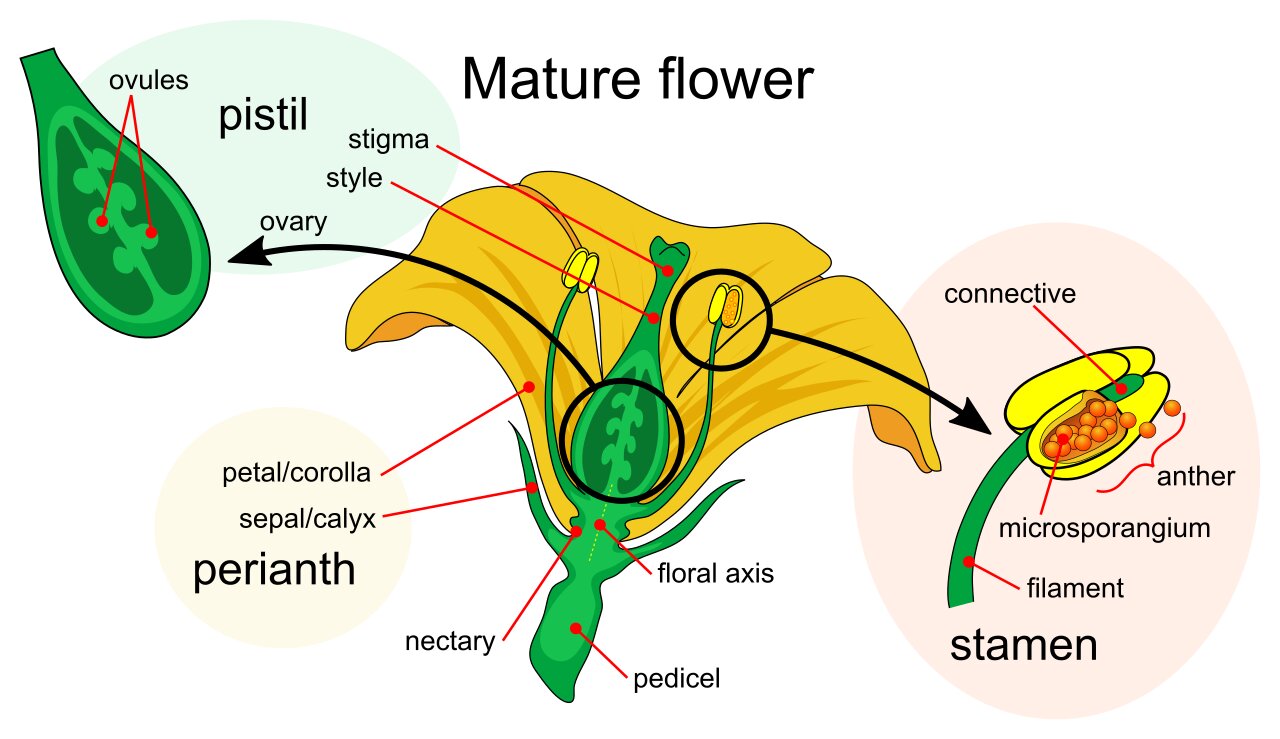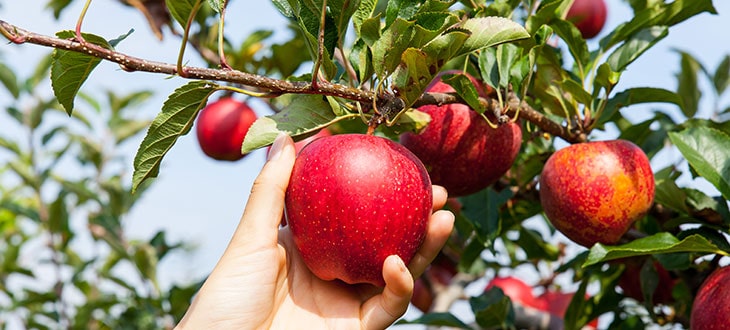Is An Apple A Fruit Or Vegetable?
Is an apple a fruit or a vegetable? Keep on reading if you want to know the botanical and culinary standpoint of this matter.
Apples are among the most popular and most consumed fruits in the world. They grow worldwide and some varieties can be stored for months in the right conditions. These fruits are produced by Malus domestica, or as we commonly know them, apple trees.
Many consume apples in their raw form, as juice, in fruit salads, or as part of various tarts, pies, or dishes. They are also utilized in the production of various beverages, making of baby food, and a variety of other products.
Besides their varied usages, apples also have multiple benefits for our health. There is even an old saying – “an apple a day keeps the doctor away.”
Although they are generally referred to as fruits, there is some controversy around apples. Thus, some are questioning if apples are really fruits or whether we should place them in another category. This is the topic we will discuss further.
Contents
Are Apples Fruits?
Let’s see if apples have the necessary attributes to be considered fruits from a botanical point of view. We will also try to determine what they are considered from a culinary standpoint as well.
Are Apples Fruits From A Botanical Standpoint?
To determine whether an apple is a fruit or not from a botanical point of view, we first have to have a clear definition of a fruit.
Although fruits are defined in many ways, we’ll take the common parts of these descriptions.
According to the definition provided by the Computer Science website of McGill University, Canada:
In botany, a fruit is the ripened ovary – together with seeds – of a flowering plant […] In many species, the fruit incorporates the ripened ovary and surrounding tissues.
CS McGill University, Canada
To help you make a clearer idea of what this means, I’ve added a useful diagram with the parts of a mature flower.

So do apples match this definition of a fruit?
Let’s see.
Apples do form from the ripened ovary of a flowering plant and they contain seeds.
Apple fruits also fit the last part of this definition – “the fruit incorporates the ripened ovary and surrounding tissues.” The fruits that form from the ripened ovary along with some other parts of the flower are called false fruits.
An additional explanation of false fruits is given by Valencia College:
Some fruits, such as apples and strawberries, consist of other flower parts in addition to the ovary or ovaries. A fruit that consists of more than just the ovary is said to have accessory tissue or is called an accessory fruit.
Valencia College
So, from the above definitions, we can draw the following conclusion:
Apples are considered fruits from a botanical standpoint. Due to the way they are formed, apples can be further classified as false fruits.
Now that we know the phytological opinion about apples, let’s see if the culinary field shares the same thoughts.
Are Apples Fruits From A Culinary Standpoint?
Many edible parts of plants are fruits from a botanical point of view but are regarded as vegetables in culinary arts. For instance tomatoes, cucumbers, pumpkins, are all botanically considered fruits but culinary often regarded as vegetables.
Let’s see what is an apple considered.
The culinary definition of fruits is quite simple and easy to understand.
In culinary terminology, a fruit is usually any sweet-tasting plant part, especially a botanical fruit […] and a vegetable is any savory or less sweet plant product.
Wikipedia
Therefore, according to this definition, we can say that the product of a plant is a fruit from a culinary point of view if it is sweet.
Are apples sweet?
Yes!
This means that apples are seen as fruits from a culinary viewpoint.
Are Apples Vegetables?
Now that we have seen that apples are fruits both botanically and culinary, let’s see if they can also be vegetables.
What is a vegetable?
Unlike fruits, botany does not have a clear definition of vegetables.
According to ScienceDaily, “vegetable” is only a culinary term. Moreover, this source states that “this definition has no scientific value and is somewhat arbitrary and subjective“.
Therefore, since this terminology is not scientific, we will analyze the culinary meaning of vegetables.
In general, a vegetable is described as the edible portion of a plant.
The Division of Agriculture and Natural Resources of the University of California provides a clearer definition for vegetables:
Vegetable, the edible product of a herbaceous plant-that is, a plant with a soft stem, as distinguished from the edible nuts and fruits produced by plants with woody stems such as shrubs and trees.
vric.ucdavis.edu
Therefore, if the classical definition includes in the category of vegetables all the edible parts of a plant, the interpretation offered by the University of California is a bit more elaborate and excludes from vegetables the products of plants with woody stems, like trees.
Wikipedia, also adds the following to the culinary definition of a fruit:
… and a vegetable is any savory or less sweet plant product.
Wikipedia
Therefore, if we follow the very broad definition of vegetables and its original meaning, we can say that any edible part of a plant is a vegetable, including fruits such as apples.
If we consider other definitions that identify a fruit depending on its level of sugar, then apples are fruits and not vegetables as they are sweet-tasting.
However, I think the definition provided by the University of California is more complete because it gives us some additional filters to exclude certain fruits and nuts from this division.
Consequently, I think it is fair to say that apples are not vegetables but fruits.
Conclusion
Apples are fruits from both a botanical and culinary perspective.
The term “vegetables” belongs to the culinary arts and is not backed up by a scientific definition. Even so, most interpretations indicate that apples are fruits even from a culinary point of view and not vegetables.

